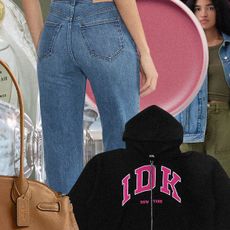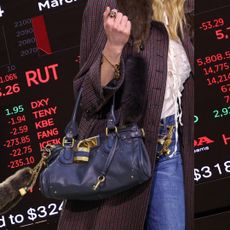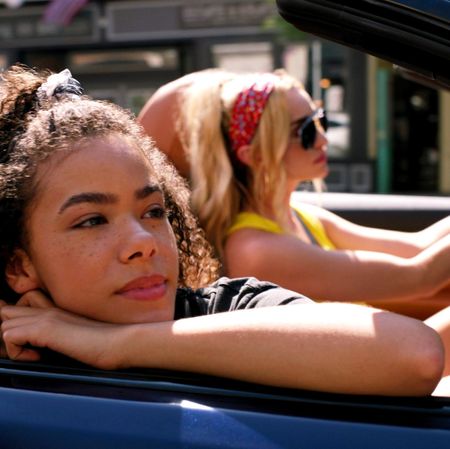Is Uber Dangerous for Women?
Many say yes.

Since its launch five years ago, Uber has become a startup supernova, with 160,000 drivers in the U.S. alone and a staggering $41 billion valuation. (That's more than Southwest Airlines and JetBlue combined.) Yet amid mounting criticism that the company isn't doing enough to protect female passengers, Uber has fast become Silicon Valley's premier case study in how to lose friends and alienate people.
On a rain-soaked night in March, a glittering crowd of global leaders and activists packed the Hammerstein Ballroom in New York City to celebrate the 20th anniversary of the historic United Nations Fourth World Conference on Women in Beijing, where Hillary Clinton famously asserted, "It is no longer acceptable to discuss women's rights as separate from human rights." Inside the ballroom, the former secretary of state once again took the stage, as did notables like UN General-Secretary Ban Ki-moon, Melinda Gates, and, fresh off her memorable equal-pay rallying cry at the Oscars, Best Supporting Actress winner Patricia Arquette. Also ascending the stage was Salle Yoo, general counsel of Uber, the hugely popular ride sharing service, which had cosponsored the event. Yoo, the highest-ranking woman at Uber, was clearly basking in the moment: Earlier that day, Uber had announced a landmark partnership with UN Women aimed at creating 1 million jobs for female drivers around the world by 2020. "It is a really nice fit for us," Yoo told me a few days later.
It was a strange choice of words given Uber's well-publicized travails with women, from sexist comments by cofounder and CEO Travis Kalanick (more on that in a bit) to a slew of assault allegations against Uber drivers. The joint announcement seemed to suggest Uber wanted a fresh start, that wholesale changes were afoot. But the bonhomie would be short-lived. Less than two weeks later, UN Women pulled out of the partnership amid a raft of criticism aimed at Uber's checkered track record on safety for female passengers. (There was also the troubling irony that the UN had hitched its wagon to a company whose jobs, critics noted, were low-paying and volatile, hardly the kind of economic opportunity UN Women typically gets behind.) So widely scorned was the deal that when Phumzile Mlambo-Ngcuka, the executive director of UN Women, announced the split before a session of the UN's Commission on the Status of Women, the entire room applauded.
Less than two weeks later, UN Women pulled out of the partnership amid a raft of criticism aimed at Uber's checkered track record on safety for female passengers.
For Uber, it was yet another wincing misstep in a brief history rife with them. Two years ago, in an internal e-mail concerning an alleged assault by an Uber driver later published on Gawker-owned tech-industry blog Valleywag, Kalanick blamed the media for positioning Uber as "somehow liable for these incidents that aren't even real in the first place." (Kalanick declined repeated requests to be interviewed for this article.) In March 2014, in a GQ profile, the famously brash Kalanick characterized his growing success with the ladies by saying, "We call that Boob-er." Then there was the incident last October in Lyon, France, when Uber hastily yanked a promotional campaign that offered free 20-minute rides with Avions de Chasse ("hot chick" drivers). And in November, Uber exec Emil Michael ignited a media firestorm for comments he made at a supposedly off-the-record dinner in which he admitted that he wanted to hire researchers to dig up dirt on Uber critics, specifically name-checking Sarah Lacy, founder and editor of PandoDaily, a well-read Silicon Valley news blog, and vocal Uber gadfly. (Michael later apologized, saying his remarks "do not reflect my actual views and have no relation to the company's views or approach.")
"What makes Uber different from other companies is that we are trusting someone with our safety," Lacy tells me. She's referring to the bigger, darker problem lurking at Uber underneath the Silicon Valley bad-boy bro stuff. Coinciding with Uber's explosive global growth in the past two years—40,000 drivers joined last December alone—there have been at least 14 alleged assaults by drivers in Uber hubs like Chicago; Los Angeles; Philadelphia; Washington, D.C.; London; and Paris. On a single night last December in Boston, two women accused two different Uber drivers of assault. (The district attorney there is still investigating both cases.) The same month, an Uber driver was arrested for allegedly kidnapping and raping a 26-year-old passenger in India, prompting New Delhi to briefly ban the company from operating there. (The driver in that incident is currently awaiting trial.) And in early April, an Uber driver in Houston was charged with sexually assaulting an intoxicated woman he'd picked up from a bar and driven back to his home. (That case is still pending.)
"Have we had a few bumps reputationally along the road? Sure, we've had some growing pains," says David Plouffe, the former Obama campaign manager who joined Uber last summer as senior vice president of public policy and strategy. "But you have to understand the relationship that is most important to an Uber rider is that relationship with their Uber driver, and it's one that they really cherish."
On a single night last December in Boston, two women accused two different Uber drivers of assault.
Hatched in 2008 by Kalanick and pal Garrett Camp, Uber was conceived late one wintry evening in Paris when the pair found themselves on the street unable to flag down a taxi. They soon launched in San Francisco, and in short order, A-list investors flocked, reportedly including Jay-Z and Ashton Kutcher. Even by tech standards, Uber's growth has been staggering. Three years ago, it operated in just 14 cities; today, it's in 300 cities in 56 countries, including Saudi Arabia, Lebanon, Kenya, and Russia. By the end of 2014, it boasted roughly 160,000 active drivers in the U.S. alone. By February, Uber had, all told, raised almost $5 billion in funding, valuing the company at $41 billion — more than the market values of American blue chips like Gap, Viacom, or the Kellogg Company.
Stay In The Know
Get exclusive access to fashion and beauty trends, hot-off-the-press celebrity news, and more.
During this period, the ride-sharing behemoth has run roughshod over, well, pretty much everyone: the taxi industry, local regulators, competitors, journalists, even its own drivers, many of whom charge that the company is shortchanging them on benefits. But Uber's raison d'être has always been disruption. It rolls into a city, plants its flag, and fights the established regulatory regime. Uber's culture has been shaped by what Kalanick, now 38, has called "principled confrontation." The main conference room in its San Francisco headquarters is dubbed the "war room." By using an app to connect a rider directly with a driver, Uber operates in the largely unregulated netherworld of ride sharing—a gray area that skirts licensing and tax implications associated with conventional taxi and limousine services.
And that, in particular, has raised unsettling questions about how Uber vets its drivers. In ads and promotional materials, Uber bills itself as "the safest ride on the road" and says it adheres to "the strictest safety standards." Yoo insists that the company's safety measures "always exceed what is required of local taxi companies." That doesn't quite square with the reality, though. Local ordinances vary depending on the city, and in places like Philadelphia, Seattle, and Boston, Uber's criminal background checks, which go back seven years, do, in fact, supersede those of local taxi agencies. But most cities around the country (San Francisco, Indianapolis, Chicago, and Houston, to name just a few) also require finger- printing, which is then cross-referenced against federal databases that track violent offenders. Several, like New York, L.A., Phoenix, and Chicago, even mandate drug testing. Uber only requires the background checks.
There's no emergency number or hotline on the current version of the app—all communications with Uber occur over e-mail.
In December, the district attorneys in L.A. and San Francisco jointly filed suit against Uber, alleging that it makes "misleading representations regarding the measures it takes to ensure customer safety in order to induce people to get into a stranger's car." (Uber says it's in discussions with the district attorneys.) The same week, the city of Portland, Oregon, sued Uber for allegedly operating an illegal and unregulated taxi service, prompting Uber to suspend service there indefinitely.
Uber's hiring process works like this: Drivers apply online, submitting social security, driver's license, insurance, and car registration numbers, which are then vetted by three private background-check firms. Last summer, Uber commissioned Giuliani Partners, the security outfit run by former New York City mayor Rudolph Giuliani, to audit its background-check procedures. Eight months later, the report is complete, though Uber won't share it, except to say in a statement that it "recommended safety enhancements, including a new Code of Conduct, Quality Assurance Program, and worldwide Incident response Teams." Last October, the former mayor, in comments posted on Uber's blog, said, "Fundamentally, the Uber domestic driver [background-check] process is sound and we believe represents a substantial improvement over the existing safety standards in the personal-hire transportation world."
But there's no question the process can be gamed. In April, Houston officials blasted ride-sharing services including Uber for incomplete background checks and found drivers with criminal histories. "The inadequacy of these background checks has been detailed again and again," says Dave Sutton, the spokesperson for Who's Driving You, a trade group representing taxi and limo companies. For a woman who may be intoxicated after a night out, he says, "Climbing into an Uber vehicle can be a terrible choice. Lots of these incidents have happened when a passenger was inebriated."
To be clear, a drunk passenger is vulnerable whether she's in an Uber or a taxi. But Yoo claims that such incidents "actually happen to Uber less by a huge margin. That's not to say that is any sort of a defense, that's just a fact." Problem is, law enforcement statistics do not break out where assaults occur. Marie Claire asked Yoo for the source of her comment—how does she know you're more likely to be assaulted in a cab?—but at press time, she had yet to provide it.
Around the country, Uber (along with other ride-sharing firms) has aggressively fought stricter legislation concerning its background checks. Still, in April 2014, it nonetheless began tacking on a $1 safety surcharge to all rides. What does that fee go toward? That's hard to say, exactly. Over e-mail, a spokesperson stated that it includes "federal, state, and local background checks, regular motor vehicle screenings, driver safety education, current and future development of safety features in the app, and more."
There's no emergency number or hotline on the current version of the app—all communications with Uber occur over e-mail, which the service says it mans 24 hours a day. Get into trouble and, short of calling 911, you'll have to e-mail Uber and then hope you get a quick response—via e-mail. In March, the woman in New Delhi alleging rape (she remains anonymous owing to privacy concerns) said in a statement that Uber officials refused to meet with her to discuss safety reforms. "Until women can legitimately feel safe," she said, "we cannot obtain equality. Sadly, Uber doesn't understand this."
Until women can legitimately feel safe," she said, "we cannot obtain equality. Sadly, Uber doesn't understand this.
Riders may not even realize that in its terms and conditions, Uber indemnifies itself of liability for incidents involving its cars and drivers. In most cities, taxi owners and operators (not just the drivers) are on the hook for claims against them. But, in effect, Uber says it's neither an owner nor an operator, just a piece of software that connects riders to cars. Have a run-in with a driver? Not our problem, says Uber. According to the fine print: "Uber does not guarantee the quality, suitability, safety, or ability of third-party providers. You agree that the entire risk arising out of your use of the services ... remains solely with you, to the maximum extent permitted under applicable law."
There are signs that big changes may be forthcoming. In the aftermath of the rape allegation in India, Uber implemented a series of new safety features there, including a panic button on the app that connects riders to local authorities, as well as an upgraded "ETA" function that allows a passenger to disclose her whereabouts in real time to friends and family. (Although Uber says it plans to roll out similar features in the U.S., it hasn't said when.) Earlier this year, Uber issued a "safety checklist"—for app users in Chicago and Boston only—advising them, among other things, to confirm that the name and face on the app match the driver motioning to them in the car. And in early April, soon after the UN Women debacle, Uber hired Facebook alum Joe Sullivan as its first chief security officer to oversee digital and physical security matters. "These incidents hit us very hard," Yoo tells me. "As a company, we are always trying to do better."
In the meantime, safe travels, ladies.
A version of this article appears in the June issue of Marie Claire, on newsstands now.
-
 Meghan Markle's As Ever Collection Finally Launches—And Sells Out Within Minutes
Meghan Markle's As Ever Collection Finally Launches—And Sells Out Within MinutesJam for the win.
By Kristin Contino Published
-
 Everything Marie Claire Editors Are Buying This April
Everything Marie Claire Editors Are Buying This AprilFrom trendy East-West handbags to the perfect creamy pink blush, these are the coveted items filling our spring shopping carts.
By Marie Claire Editors Published
-
 Recession Indicators Are Hitting Fashion Right After Wall Street
Recession Indicators Are Hitting Fashion Right After Wall StreetWhen trend forecasters look at these throwback styles, they see economic history repeating.
By Halie LeSavage Last updated
-
 'Ginny & Georgia' Season 2: Everything We Know
'Ginny & Georgia' Season 2: Everything We KnowNetflix owes us answers after that ending.
By Zoe Guy Last updated
-
 'Firefly Lane' Season 2: Everything We Know
'Firefly Lane' Season 2: Everything We KnowIn the immortal words of Tully Hart, "Firefly Lane girls forever!"
By Andrea Park Published
-
 'Bridgerton' Season 2: Everything We Know
'Bridgerton' Season 2: Everything We KnowThe viscount and his new love interest hit Netflix at the end of March.
By Andrea Park Published
-
 'Bachelor In Paradise' 2021: Everything We Know
'Bachelor In Paradise' 2021: Everything We KnowFeatures It's back, baby!
By Andrea Park Published
-
 'Spencer,' the Princess Diana Movie: Everything We Know
'Spencer,' the Princess Diana Movie: Everything We Know"Every fairy tale ends."
By Andrea Park Published
-
 Who is Abigail Heringer From 'The Bachelor' and 'Bachelor in Paradise'?
Who is Abigail Heringer From 'The Bachelor' and 'Bachelor in Paradise'?Features The 25-year-old, who first appeared on Matt James' season, is a financial analyst with an inspiring backstory.
By Andrea Park Published
-
 What Does "ROC" Mean at the Tokyo Olympics?
What Does "ROC" Mean at the Tokyo Olympics?It's a temporary workaround in the aftermath of Russia's massive doping scandal.
By Katherine J. Igoe Published
-
 Katie Thurston's 'Bachelorette' Cast: Every Detail We Know
Katie Thurston's 'Bachelorette' Cast: Every Detail We KnowIncluding familiar faces, several athletes, and a famous rapper's brother.
By Megan DiTrolio Published